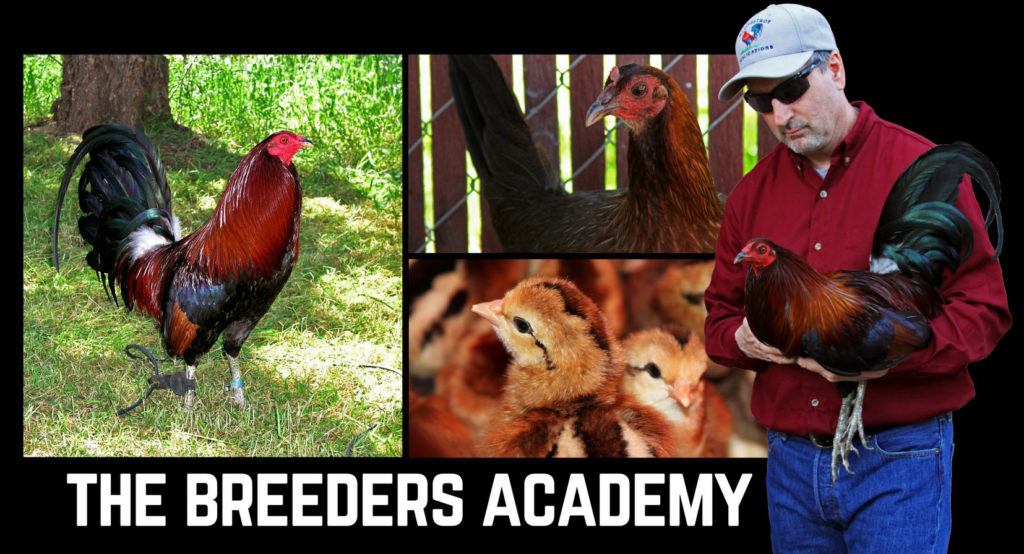 Highly Pathogenic Avian Influenza and Pastured Poultry Flocks
Highly Pathogenic Avian Influenza and Pastured Poultry Flocks
Pastured Poultry Talk
I have a conversation with Chrislyn Wood, DVM, about the threat of Highly Pathogenic Avian Influenza (HPAI) and pasture raised flocks. Dr. Wood is a veterinarian with USDA APHIS and she is involved first hand with HPAI monitoring and response efforts. We cover a lot of ground, including historical observations, risk assessment, disease identification, and prevention.
info_outline The Days of Wholesale Pastured Chickens are Over for Greg Gunthorp
The Days of Wholesale Pastured Chickens are Over for Greg Gunthorp
Pastured Poultry Talk
Greg Gunthorp joins the show to talk about his decision to step away from pasture raised chickens. Covid plays into the story, of course, but the challenges started long before this virus came to be front page news.
info_outline Turning a 20 year chicken hobby into a farm with Cynthia Capers
Turning a 20 year chicken hobby into a farm with Cynthia Capers
Pastured Poultry Talk
Cynthia Capers, Heniscity Farm in Tennessee, shares her 20+ year journey from hobby chicken keeper to farm. Twenty years ago, the sight of six Black Australorps brought tears to her eyes. Today, she's serving her community through egg sales, chick sales, and pullet sales.
info_outline PPT114 - Small Layer Flock Profitability
PPT114 - Small Layer Flock Profitability
Pastured Poultry Talk
I answer a listener question, "How can I make my small laying hen flock more profitable?" With feedback from the community, insights from The Fighting Farmer, and personal experience, we dive deep into ways to prosper from your small flock of laying hens.
info_outline Perdue Acquires Pasturebird
Perdue Acquires Pasturebird
Pastured Poultry Talk
Perdue acquires Pasturebird and becomes the biggest producer in the space. I unpack what it means on this episode and walk through some history.
info_outline Maintain Production with All In/All Out Rotation for 5,000 laying hens
Maintain Production with All In/All Out Rotation for 5,000 laying hens
Pastured Poultry Talk
Listener Chris asks how to utilize an all-in/all-out pullet replacement strategy without duplicating infrastructure while maintaining egg production. To help answer the question, I share insights from Mark Harrison and Dave and Ginger Shields.
info_outline Community Q&A Plus a Monologue on Heritage Poultry's Role in Pastured (PPT109)
Community Q&A Plus a Monologue on Heritage Poultry's Role in Pastured (PPT109)
Pastured Poultry Talk
I close out the pastured poultry training series with a live streamed Q&A between Terrell Spencer from The Fighting Farmer and myself. We went live on Facebook and fielded questions from our listeners, and this episode of the podcast includes an edited version of that conversation. If you want to watch a replay of the stream, find it on . Before we work into the questions, I offer some thoughts on heritage poultry's potential role in pastured community. APPPA has recently started to focus on breeding specific topics and offers monthly livestreams on breeding. Check out . We cover a...
info_outline Feed Management Tips to Reduce Waste & Maintain Egg Production
Feed Management Tips to Reduce Waste & Maintain Egg Production
Pastured Poultry Talk
In Pastured Poultry Talk episode 110, farmer Matt Steinman discussed how he used fermented feed as a solution to waste and fines. While fermentation can be a viable solution for some people, it's not the only way to deal with fines. This episode unpacks those options.
info_outline Is Fermented Feed Worth the Time for 1,000 hens?
Is Fermented Feed Worth the Time for 1,000 hens?
Pastured Poultry Talk
Farmer Matt Steinman (Foothills Farm in Sedro-Woolley, Washington) and Dr. Louisa Brouwer (technical advisor on the trial) share the results of a SARE-funded trial that sought to understand the economic impacts of feeding fermented feed to laying hens. The trial compared a dry feed, wet feed, and a fermented feed and then determined the net difference across to the bottom line.
info_outline Community Q&A PIus a Heritage Poultry Monologue
Community Q&A PIus a Heritage Poultry Monologue
Pastured Poultry Talk
I close out the pastured poultry training series with a live streamed Q&A between Terrell Spencer from The Fighting Farmer and myself. We went live on Facebook and fielded questions from our listeners, and this episode of the podcast includes an edited version of that conversation
info_outline Dangerous breeders are everywhere and the internet gives them a platform to perpetuate bad breeding habits at the expense of offspring that represents the breed. A dangerous breeder is someone who produces offspring that doesn't represent the breed. They often don't know how to selectively breed, and they're not interested in learning.
Dangerous breeders are everywhere and the internet gives them a platform to perpetuate bad breeding habits at the expense of offspring that represents the breed. A dangerous breeder is someone who produces offspring that doesn't represent the breed. They often don't know how to selectively breed, and they're not interested in learning.
I may be characterized as a dangerous breeder in that I have done things that are counter to good breeding practices, but I've not really perpetuated my lack of knowledge by selling my failed breeding projects. I understand my gap in breeding knowledge and the gap in the quality of my birds. I tend to eat my lack of understanding rather than selling it.
Master breeder Kenny Troiano of the Breeders Academy and Bred to Perfection podcast joins the show to help us become better breeders. Too often, when we talk to breeders about their work, we focus on the end result--the successes they've had and that leaves a large gap in knowledge for people who want to start breeding. If you want to breed well, then your effort goes way beyond mating a rooster and a hen to hatch an egg.
In this episode of Pastured Poultry Talk, Kenny lays out the foundation for any serious breeding effort. You'll still need to read, to learn, and to seek a mentor, but you'll get a clear picture of the work involved.
It's not an easy effort, but that's why it becomes important for you to determine your goals. If you want a few birds on the farm to admire and eat, that will have different requirements than selectively breeding a family of birds for productivity and breed representation.
What Have Commercial Breeders Done
The commercial breeders understand hybrid vigor, says Kenny. That understanding has produced the 300+ eggs per year layers and the meat birds that can be slaughtered as early as 35 days. It's incredible to think about that this productivity came from within the traits that already existed within the genetics of the chickens; the hybrid crosses enhance the traits.
Hybrid vigor has a ceiling, however. Cross two breeds and they increase their production. Cross two hybrids and you end up with variable, unpredictable results that produce at a rate less than the original hybrids.
The commercial breeders, according to Kenny have pushed their breeding so far with proprietary crossings, that they are at risk of inbreeding depression. Disease resistance is also suffering in the commercial breeding lines.
A Breeding Checklist
Kenny covers a lot of ground in the episode, but here are some key points to think about as you (re)start your breeding journey.
- Learn the origin and history of breed you want.
- Understand culling and learn about defects.
- If you see a defect, don't buy the bird. Defects are recessive, and if you breed two birds with the same defect, all offspring will be affected.
- Breeding hybrids will have a variability in size, color, shape, etc. Commercial hybrids have unknown genetic qualities.
- Every breeder should know what their common defect is. Hint: If you're buying breeding stock, ask what the common defect is!
- Always select offspring that's better than the parents. When selecting birds, go beyond the top 10%. Look for the stand outs that take the family to the next level, whether that's one or a handful.
- Find a breeding trio to establish your program so you can see exactly what the birds are. Hatching chicks as a way to establish your family is often problematic, variable, and disappointing.
- Setup a clan mating system (also called spiral mating system), which is three groups of birds. The clan mating system is a good maintenance system and helps ensure genetic diversity. Kenny has not introduced new bloodlines into his breeding in over 30 years.
- Understand clan mating is only one of the types of breeding programs. You'll use other programs in parallel to achieve the results you want. Another common approach is to line breed.
- Never mix breeding birds with production birds.
- Only breed birds that have the potential to advance the family by selecting offspring better than the parents.
- Hatch has many offspring as you can afford.
- Understand genetics.
- Get a mentor and hang out with people smarter than you!
Kenny provided this reading list. His writings and Breeders Academy make these topics more accessible:
- Mendel's Law of Independent Assortment
- Mendel's Law of Segregation
- Sexlink traits and quantitative traits (polygenic)
- Mutation theory
- Punnett Square
Show Resources
 You can connect with Kenny through any of these resources or email him directly.
You can connect with Kenny through any of these resources or email him directly.
- Breeders Academy Podcast
- Breeders Bulletin (Free Email Sign up)
- Breeders Academy Sign Up for Pastured Poultry Talk Listeners
Publications
- Poultry Press
- Gamefowl Breeders Manual (Amazon)
Pastured Poultry Talk Episodes Referenced
https://pasturedpoultrytalk.com/2015/05/15/ppt003-hatching-eggs-on-the-homestead-with-harvey-ussery-2/
https://pasturedpoultrytalk.com/2015/07/24/ppt013-not-a-backyard-chicken-club-jim-adkins-interview-part-1-2/
https://pasturedpoultrytalk.com/2017/05/20/ppt051-pat-whitaker-breeds-black-australorps-for-utility/
https://pasturedpoultrytalk.com/2019/07/04/breeding-delaware-chickens/
